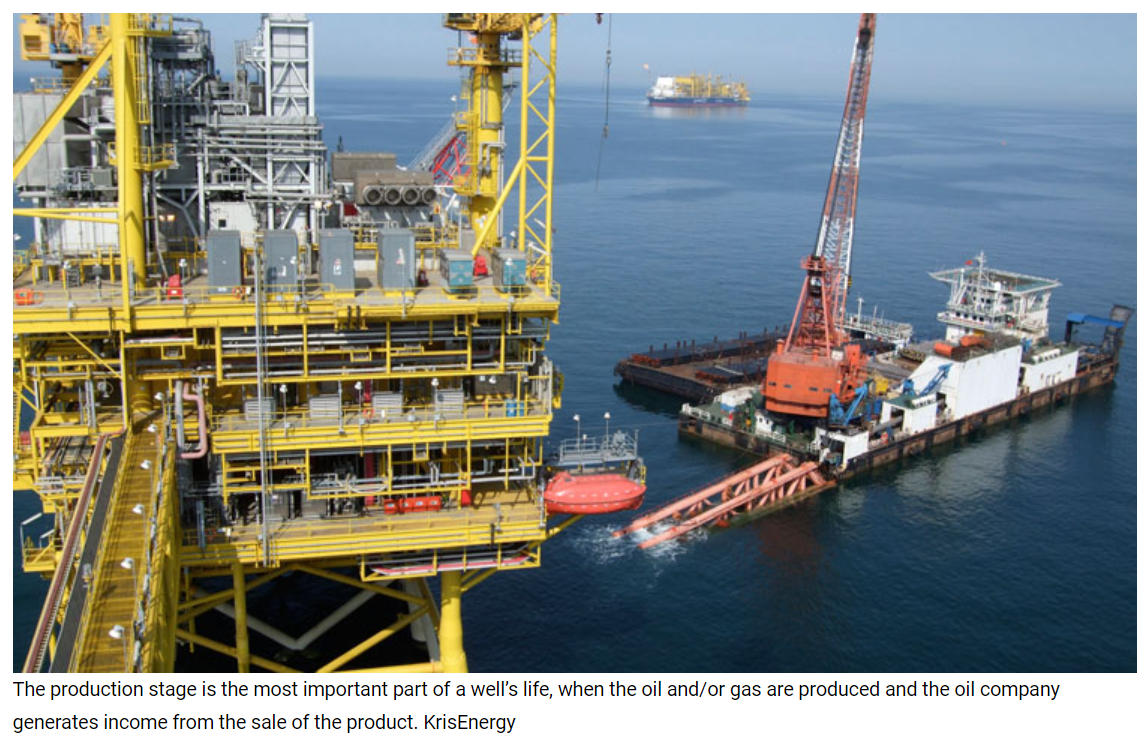Very volatile commodity prices affect Cambodia’s emerging mining industry
A news conference held by the Ministry of Mines and Energy yesterday has shed light on the current economic impact on Cambodia’s emerging mining industry caused by the extreme volatility in commodity prices in both Cambodia and around the world.
Oil extraction bleak
The government’s plan to extract its first drop of Cambodian-sourced oil by the first half of this year, in conjunction with the Singaporean company KrisEnergy Ltd, will be very unlikely because of the extreme drop in oil prices caused by the COVID-19 pandemic. According to Cheap Sour, director-general of the General Department of Petroleum at the Ministry of Mines and Energy, this current “critical situation” has been caused by the massive reduction in global oil prices.
While Sour did not specifically state that the current plan to extract oil from the Apsara oil field in Cambodia’s offshore Block A would be delayed, he did disclose that the ministry is holding a “crisis” meeting to discuss the situation with the exploration firm.
“We are not currently able to evaluate what effect the economy will have on our current timeline [for oil extraction]. However, we will be conducting a meeting with the company on the matter. In addition, there may also be some necessary equipment to be imported from overseas,” he said.
According to industry experts, the global oil industry is facing the biggest demand drop in history, with traders and analysts forecasting crude oil consumption will continue to fall further over the coming months and production will continue unabated due to a fallout with major oil-producing countries Saudi Arabia and Russia.
These factors have resulted in oil storages becoming full, with the US benchmark West Texas Intermediate (WTI) falling to the unbelievable minus $37.63, meaning that producers were actually paying storage facilities to take the commodity off them.
That said, analysts don’t expect this bizarre event to last long expecting the price to rebound back above zero today and rising to $21 a barrel by June. However, it is still far below the previous prices over the past five years.
If these figures are correct, simple economics state that Cambodia will not be able to extract any oil at a profitable level in the foreseeable future because extraction costs are estimated at around $70 a barrel.
KrisEnergy and the Cambodian Government signed the deal in August 2017 under an agreement of 95 working interest by the firm and the remaining 5 percent by the government. The offshore Block A oil deposit, covers an area of 3,083 sq km in the Gulf of Thailand over the Khmer Basin, approximately 150 km offshore and was expected to reach a peak production rate of 7,500 barrels of oil per day.
Gold price spikes
Investors seeking to find security during the COVID-19 pandemic have flocked to gold, causing the commodity to reach over $1,700 an ounce and projected to increase to over $1,900. With analyst stating that gold has benefited from the deep slump in oil price and general market fear.
However, because of import issues, the Indian-owned mining firm Mesco Gold (Cambodia) has had to temporarily halt work on a new processing plant being installed at its Phum Syarung gold mine in Ratanakiri’s Yatung commune, according to a company representative. The hiatus means that the company’s plans to start extracting the precious metal last month are also on hold, as currently, only 20 percent of the installation has been completed.
Also looking to cash in on gold’s high commodity price, Renaissance Minerals, a subsidiary of Australia-listed Emerald Resources, announced that it hopes to begin extraction in 2020.
The exploration firm released its definitive feasibility study in May 2017 and revealed that the project could produce 106,000 ounces of gold per year on average.
Important sector
According to Yos Monirath, director-general of the Mines Department at the Ministry, revenues collected by the government from the mining industry are divided into two categories. The first is through non-tax revenue includes licensing fees, land leases and royalties payable to the government through the Ministry of Mines and Energy. The second is through tax revenue that is collected by the General Department of Taxation, under the Ministry of Economic and Finance.
Registered investment capital by both foreign and local investors in the mining sector has been valued at $1.157 billion with currently about 40 companies having mining exploration licences in the Kingdom, according to Yos.
The industry has serious potential to contribute to Cambodia’s growing economy by becoming an emerging revenue stream for the government, he said. “Cambodia will become much more attractive to investors once it establishes and matures its gold mining and oil extraction operations,” he added.
Source: https://www.khmertimeskh.com/50715486/very-volatile-commodity-prices-affect-cambodias-emerging-mining-industry/


 English
English




